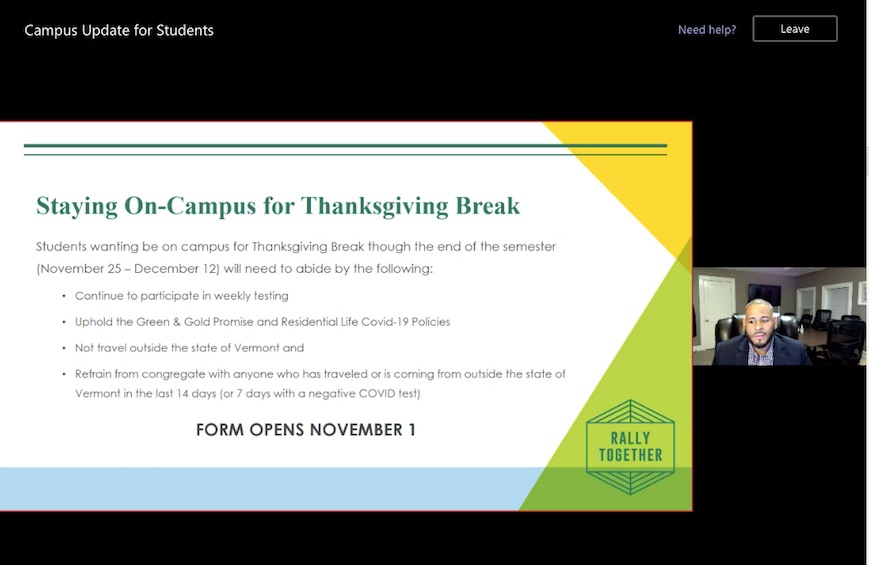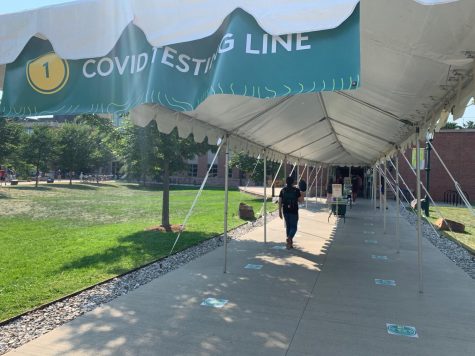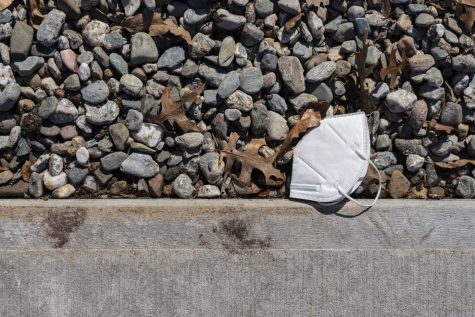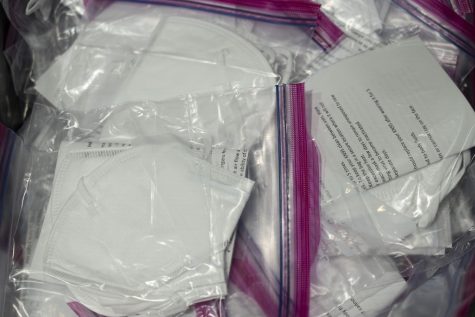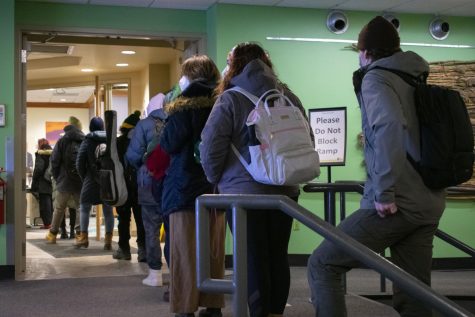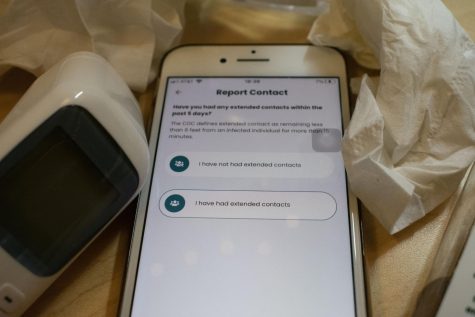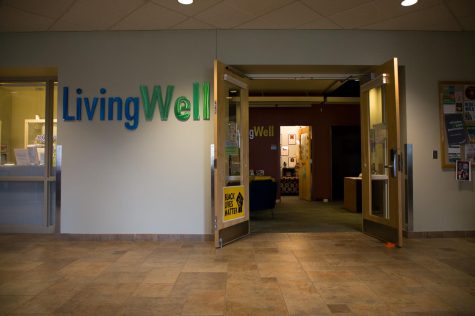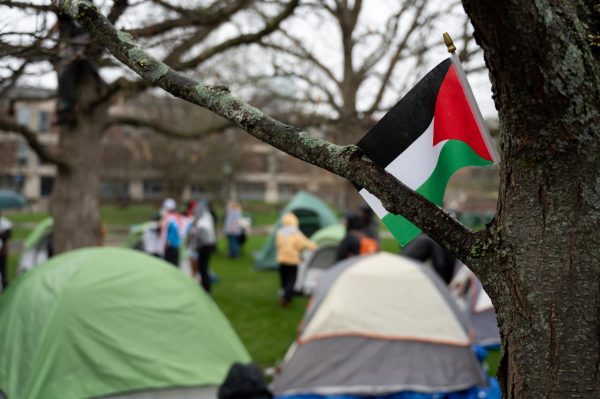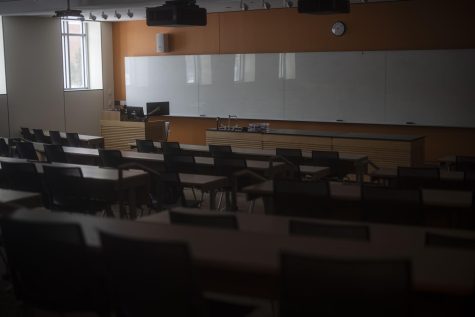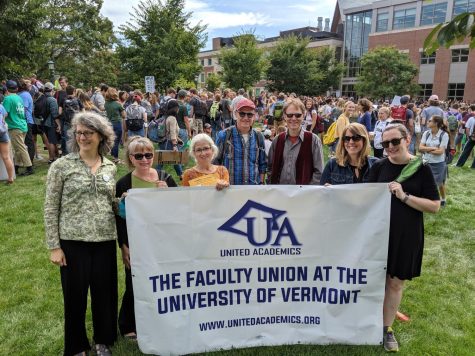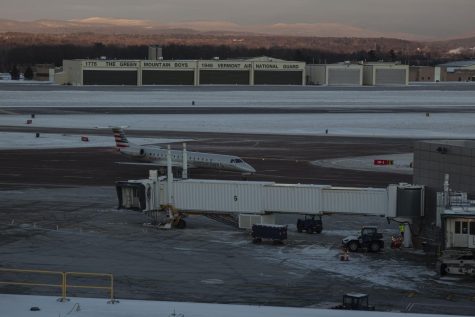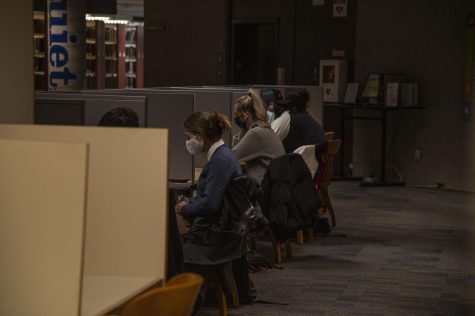Administrators announce change in spring semester plans for remote students
Executive Director of Residential life Rafael Rodriguez presents options for student wishing to stay on campus during Spring Break, over Teams Oct. 12.
UVMStrong’s recently announced plans for the spring semester have caused concerns about what a greater influx of students returning to Burlington next semester will mean for COVID-19 safety.
UVM administrators held a virtual Q&A session Oct. 12, discussing the University’s plans for the semester, answering questions about quarantine, COVID-19 testing and a new at-home option for upperclassmen.
Upperclassmen’s New At-Home Off-Campus Option for Spring Semester
In Spring 2021, upperclassmen will be able to opt for at-home learning and still live in Burlington, unlike last semester, where at-home students were expected to live at their permanent address.
UVM Vice Provost Annie Stevens discussed the change in the meeting and said juniors and seniors who wish to stay in Burlington will be able to either attend classes in person or entirely online.
However, any students who select the at-home option, even if they’re in Burlington, will be exempt from the testing pool and should not be on campus for any reason.
Aidan May, chair of committee and legislative affairs, said he anticipates a lot of upperclassmen taking the opportunity because a large portion of classes is already partially or fully remote.
“I certainly could see that being an issue,” May said. “If I was in charge of testing I would still encourage at-home students who are in Burlington to continue to get tested.”
The city of Burlington, however, expressed optimism about UVM’s spring plans, despite the possibility that students may be in Burlington but not getting tested regularly.
“UVM has already committed to continue the weekly testing with the Broad Institute, to use the VAULT pre-tests for returning students prior to their arrival on campus, and to eliminating spring break this academic year,” said Brian Lowe, interim chief innovation officer for the city of Burlington.
Lowe did caution that the future still remains unknown, however.
“This reflects the model for the fall semester that has worked well so far, but of course the City, State, and institutions are also carefully tracking what is happening both locally and across the country,” he said. “So these plans could evolve over the coming weeks and months.”
Testing Updates and Emergency Winter Break Housing
The administrators also suggested students should bring all their belongings home for the break due to the possibility that UVM will not be returning in person right away in the spring semester.
Despite UVM’s low positivity rate of 0.03%, administrators are preparing for the potential dangers of students returning to campus from all across the country after winter break.
Rafael Rodriguez, executive director of residential life, said if an outbreak occurs and in-person school for the spring semester is canceled, students will need to make plans to retrieve their belongings themselves and ResLife will not ship them as they had in the past.
“If I can be very honest, this is going to be up to you to decide,” Rodriguez said. “There is a slight possibility that we will not be able to begin on time or begin in-person. Think about what it would mean for you to come back to campus to retrieve your items.”
He also noted that as outlined in the housing contract, if students do not retrieve their belongings from their room within 30 days, they become UVM property and will be donated.
However, Rodriguez also noted that UVM will not allow anyone on campus until mid-January, and did not elaborate on how students would then be able to get their belongings.
Additionally, the University is offering winter break housing for students who are either housing insecure or international students who are unable to travel home.
Rodriguez said students who plan on staying through Thanksgiving and for winter break are expected to continue to participate in weekly testing, continue to uphold the Green and Gold Promise, and the COVID-19 policies.
Students will have to go through an application process that will be reviewed to determine whether or not their request is granted, Rodriguez said.
“If you’re requesting emergency break housing, you need to stay on campus through Thanksgiving for the entirety of the semester, which ends on Dec. 12, in order to eligible,” Rodriguez said.
Between Thanksgiving and the spring semester, students must be at home for at least 58 days. Students can quarantine the 14 day period at home, as long as they come directly to campus.
Dorm Room Restriction Instills Feeling of Isolation Among First Year Students
Several attendees at the meeting also shared concerns about on-campus students, specifically first years, feeling isolated and disengaged due to the restriction of having other students in their dorm rooms.
May said as a student representative, he is hoping to help students feel more engaged to combat the loneliness students feel.
“I think that has certainly been a burden for on-campus students and will likely become more of a burden as the weather gets colder and outdoor activities are not feasible,” he said.
May also expressed that his committee is working to find ways students can engage with each other in a more informal way, something that is sought after by several students on campus.
During the Q&A, an anonymous listener asked if the administration would “open up campus to some degree” for next semester.
Currently, students that live in residence halls are not allowed to have any visitors.
In response, one administrator suggested meeting in different places around campus such as the outdoor tents, common areas and dining halls.


